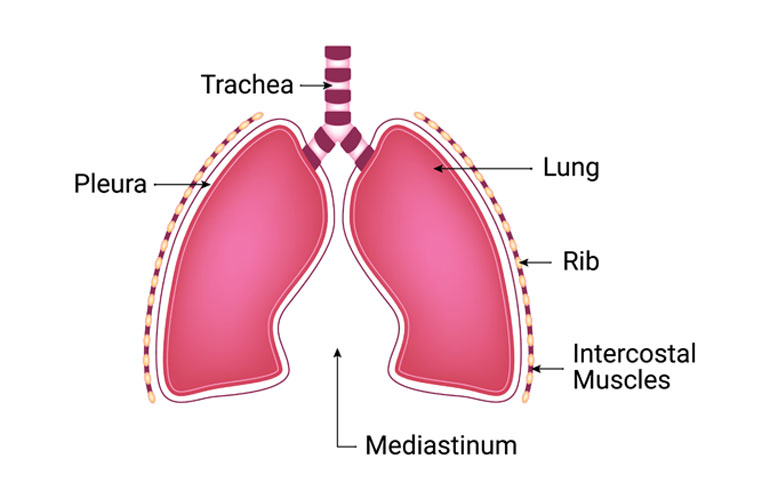- Home
- Departments
Departments Of Disorders Of The Pleura
Disorders-Of The-Pleura-SpecialistDisorders of the pleura encompass a range of conditions affecting the pleural space, the thin membrane that surrounds the lungs and lines the inside of the chest cavity. One common disorder of the pleura is pleural effusion, a condition characterized by an abnormal accumulation of fluid within the pleural space.
Pleural Effusion:
Pleural effusion occurs when fluid builds up in the pleural space, leading to compression of the lungs and difficulty breathing. There are several causes of pleural effusion, including:
Infection: Infections such as pneumonia, tuberculosis, or pleurisy can cause inflammation of the pleura and lead to the accumulation of fluid.
Heart Failure: Heart failure can cause fluid to accumulate in the lungs and leak into the pleural space, resulting in pleural effusion.
Cancer: Malignant pleural effusion occurs when cancer cells spread to the pleura and produce fluid. Common cancers associated with malignant pleural effusion include lung cancer, breast cancer, and mesothelioma.
Liver Disease: Liver cirrhosis and other liver diseases can lead to an accumulation of fluid in the abdominal cavity (ascites), which can then leak into the pleural space and cause pleural effusion.
- Symptoms of pleural effusion may include:
- Shortness of breath
- Chest pain
- Dry cough
- Difficulty breathing when lying down
- Decreased lung sounds on physical examination
Diagnosis of pleural effusion typically involves imaging studies such as chest X-ray or ultrasound, which can visualize the presence of fluid in the pleural space. Thoracentesis, a procedure in which a needle is inserted into the pleural space to drain fluid for analysis, may also be performed to determine the underlying cause of the effusion.
Treatment of pleural effusion depends on the underlying cause and severity of the condition. Options may include:
Medications: Antibiotics or anti-inflammatory medications may be prescribed to treat infections or inflammation causing pleural effusion.
Thoracentesis: Draining excess fluid from the pleural space can provide symptomatic relief and help determine the cause of the effusion.
Pleurodesis: Pleurodesis is a procedure in which a substance (such as talc) is injected into the pleural space to create inflammation and scarring, which helps seal the pleural layers together and prevent further fluid accumulation.
Surgery: In some cases, surgery may be necessary to remove a large pleural effusion or treat the underlying cause.
Overall, disorders of the pleura, such as pleural effusion, can significantly impact lung function and quality of life. Prompt diagnosis and appropriate treatment are essential for managing symptoms and preventing complications associated with these conditions.

